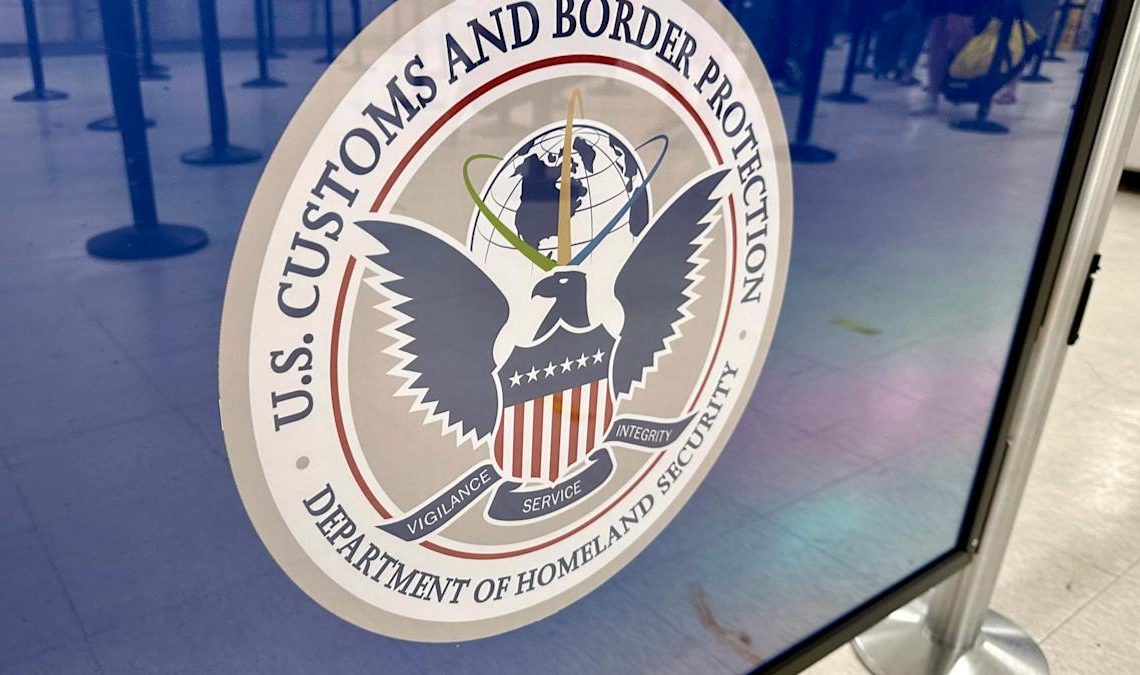Imagine just landing from an international flight, exhausted, ready to start your visit or return home. As you reach customs, a U.S. Customs and Border Protection (CBP) officer asks to see your phone. Not just a glance, they want to go through your messages, photos, and even social media apps. You pause because you think to yourself, “there’s no way this can be legal”.
Surprisingly, yes. Under current U.S. policy, CBP officers are allowed to search your electronic devices, including smartphones, laptops and tablets, without a warrant when you enter the country. And while it’s rare, it does happen. In fact, some high-profile incidents have sparked growing concern and confusion about what rights travelers really have when crossing the border.
So what’s really going on here?
The legal loophole at the border
The Fourth Amendment of the U.S. Constitution protects against unreasonable searches and seizures. But, according to the federal government, the border is different. Courts have long held that routine searches at U.S. entry points don’t require a warrant, and that includes digital devices. CBP says it has the authority to inspect electronics as a matter of national security.
That means your phone, your photos, emails, texts, DMs, cloud storage and even deleted content can be accessed and reviewed if CBP deems it necessary. Travelers aren’t always warned in advance, and refusal to comply could result in denied entry, device seizure or further detention.
Real travelers, real stories
This isn’t just hypothetical. A recent case involved a French scientist who was reportedly denied entry to the U.S. at Houston’s airport. Why? CBP found messages on his phone criticizing President Trump’s science policies. In another incident, a physician returning to the U.S. from Lebanon on a valid work visa was held at Boston Logan Airport because of photos on her phone showing a Hezbollah funeral.
These are extreme examples, but they underscore a growing trend that border agents are paying closer attention to what’s on our screens.
Immigration attorneys are taking notice, too. Elissa Taub, a partner at the law firm Siskind Susser, advises her clients to be extra cautious about what’s stored on their devices. “I’ve told my clients to make sure they haven’t unintentionally saved photos to their phone that might be controversial,” she told Newsweek. “Be very careful about your actions online in WhatsApp, Telegram or group chats. If CBP holds you up, they might ask to see everything—and there’s not much you can do to stop it.”
How often does this happen?
The good news: not very often. According to CBP, fewer than 0.01% of international travelers were subjected to electronic searches in fiscal year 2024. So, statistically, the chances of this happening are extremely low.
But it’s still a possibility—especially if you’re a visa holder, visiting from a flagged country or if something in your travel profile triggers a secondary inspection. Sometimes it’s random. Other times, it’s based on a hunch, a red flag in your travel history or simply the discretion of the officer.
What happens if they take your device?
CBP has the authority to copy data from your phone and store it for up to 15 years. Yeah, you read that right. This includes photos, messages, contact lists, downloads and app content. While the agency claims to have “robust privacy safeguards,” critics like the ACLU warn that sensitive data could be at risk.
The ACLU has argued for years that these practices violate constitutional protections. But so far, courts have largely sided with the government, citing national security interests and the special legal environment that surrounds U.S. borders.
What you can do to protect yourself
If you’re concerned about privacy while traveling internationally, consider taking some proactive steps:
-
Travel light—digitally. Bring only the data you need. Consider using a secondary device or wiping your phone before your trip and restoring it later via secure cloud backup.
-
Use strong passwords and encryption. Although CBP can ask for your passcode, encryption adds a layer of delay or deterrence.
-
Log out of social media apps. Some travelers even delete social media before crossing borders and reinstall afterward.
-
Back up everything beforehand. In the rare event that your device is seized, you won’t lose your files forever.
The bigger picture
Nations like New Zealand, Germany and the UK have issued travel advisories pointing to increased scrutiny at U.S. borders, and immigration lawyers are warning clients: Think twice before reentering the U.S. with data that could be misinterpreted or taken out of context.
This isn’t about hiding illegal activity; it’s about understanding how your digital footprint could affect your travel experience, especially when laws are still catching up to modern technology.
Final thoughts
We’re in crazy times. The fact that CBP can legally search your phone without a warrant should raise eyebrows, especially as more of our lives are stored on our devices. While the chances are low, the consequences can be significant. Whether you’re a visitor, visa holder or U.S. citizen, it’s worth knowing your rights—and traveling smart.
After all, in today’s world, your phone says more about you than your passport ever could.
The post Is it legal for CBP to search your cell phone at the U.S. border? appeared first on .




